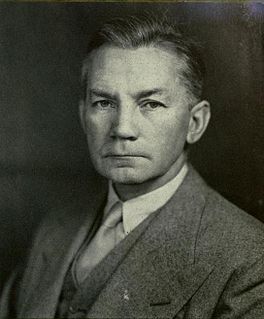A Quote by John Dewey
As formal teaching and training grow in extent, there is the danger of creating an undesirable split between the experience gained in more direct associations and what is acquired in school. This danger was never greater than at the present time, on account of the rapid growth in the last few centuries of knowledge and technical modes of skill.
Related Quotes
It has been said that the essence of teaching is causing another to know. It may similarly be said that the essence of training is causing another to do. Teaching gives knowledge. Training gives skill. Teaching fills the mind. Training shapes the habits. Teaching brings to the child that which he did not have before. Training enables a child to make use of that which is already his possession.
I've been training like crazy with my trainer Decker Davis all the time, and we've been doing this new thing called Danger Train. It's kind of storytelling about the offseason training, there's a lot more to come with that. More than anything, from a nutrition aspect to the speed aspect to the strengthening aspect and, most importantly, to the mental aspect, we're always trying to grow exponentially. We're continuing to find new ways to do that.
There are three elements of mountaineering - difficulty, danger, and exposure. Difficulty is the technical aspect of it. Danger, it is best to avoid, but some people like to increase danger to a point where their success is dependent only on luck. And exposure, which is what truly defines Alpinism, is what you face in wild nature.
It must be conceded that a theory has an important advantage if its basic concepts and fundamental hypotheses are 'close to experience,' and greater confidence in such a theory is certainly justified. There is less danger of going completely astray, particularly since it takes so much less time and effort to disprove such theories by experience. Yet more and more, as the depth of our knowledge increases, we must give up this advantage in our quest for logical simplicity in the foundations of physical theory.
One code prevails in the family; another, on the street; a third, in the workshop or store; a fourth, in the religious association. As a person passes from one of the environments to another, he is subjected to antagonistic pulls, and is in danger of being split into a being having different standards of judgment and emotion for different occasions. This danger imposes upon the school a steadying and integrating office.








































